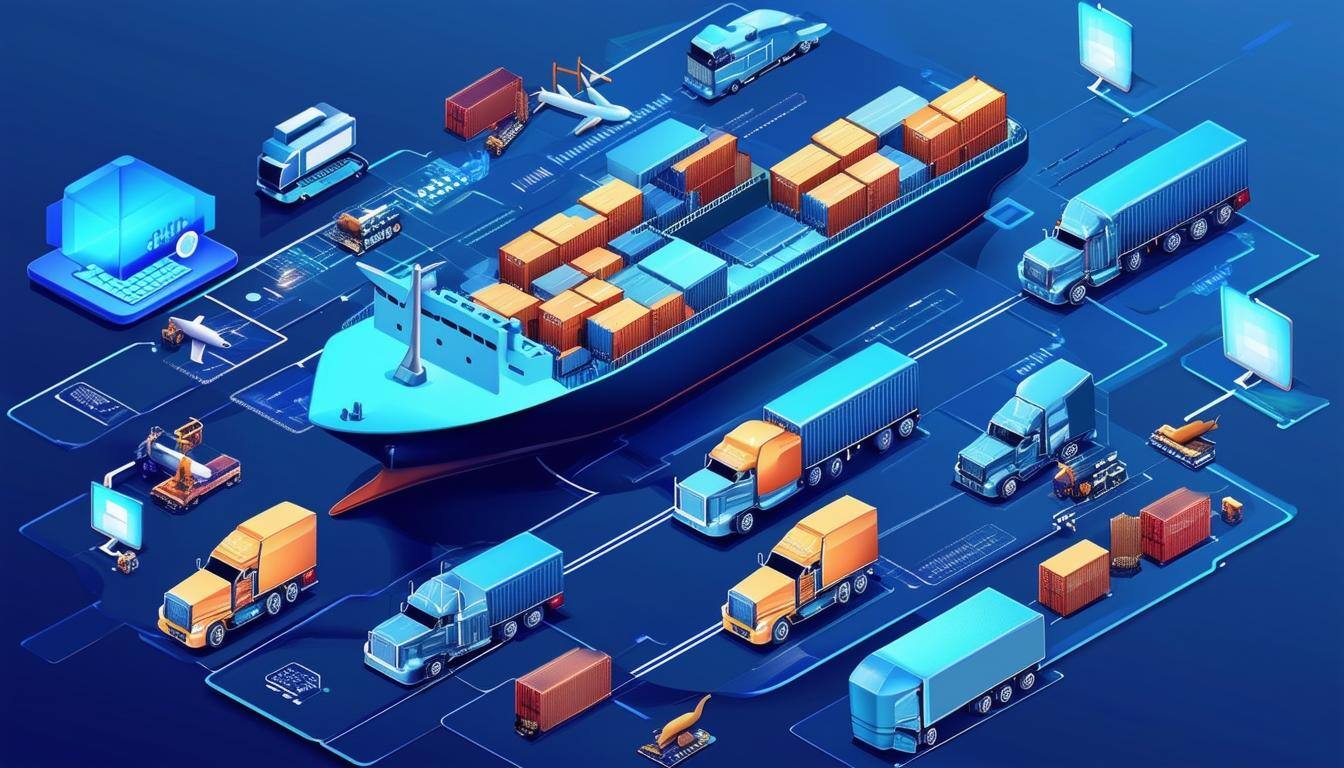The material handling and supply chain industry’s flagship event, ProMat, is just around the corner (March 17 – 20). At the show, leading technology vendors from across the warehousing and logistics industry are set to exhibit their latest supply chain innovations. From Artificial Intelligence (AI) integration to real-time visibility software, these technologies aim to build resilience for organizations’ logistics operations.
Ryan Wiggin
Recent Posts
Five Supply Chain Technology Trends to Watch at ProMat 2025
Feb 19, 2025 12:15:00 AM / by Ryan Wiggin posted in Supply Chain Management & Logistics
How Generative AI Is Powering Supply Chains
Feb 3, 2025 11:00:00 AM / by Ryan Wiggin posted in Supply Chain Management & Logistics, AI & Machine Learning
Generative Artificial Intelligence (Gen AI) radically changes how supply chain leaders manage operations. Gen AI’s ability to analyze vast datasets and identify patterns enables organizations to accurately forecast future demand, automate document generation, and pinpoint logistical bottlenecks. Moreover, Gen AI tools allow supply chain managers to simulate specific scenarios so that they are prepared for unforeseen events (e.g., natural disasters, geopolitical tension, etc.).
A 13-Point Checklist for Selling Supply Chain Control Towers
Oct 23, 2024 12:00:00 AM / by Ryan Wiggin posted in Supply Chain Management & Logistics
Supply Chain Control Towers (SCCTs) are increasingly crucial for businesses to gain real-time visibility and improve supply chain performance. For technology companies offering control tower solutions, successfully positioning your product requires strategic thinking, a deep understanding of your customer’s challenges, and the ability to demonstrate clear Return on Investment (ROI). This guide walks you through a 13-point checklist to effectively sell supply chain control tower solutions and provide a Unique Selling Point (USP) to potential customers.
Four Monumental Trends Changing Retail in 2024
Mar 26, 2024 12:00:00 AM / by Ryan Wiggin posted in Supply Chain Management & Logistics
Retailers have been on a roller-coaster ride for the last few years. A global pandemic, supply chain disruptions, inordinately high inflation, and poor economic growth worldwide have profoundly impacted the industry. Consumer behavior has also changed, as evidenced by the rise in omnichannel shopping experiences. As consumer confidence fluctuates in early 2024, their appetite for goods remains surprisingly strong.
Supply Chain Control Towers: Connecting Valuable Data
Dec 14, 2023 12:00:00 AM / by Ryan Wiggin posted in Supply Chain Management & Logistics
Modern supply chains are extremely complex, involving various stakeholders, regions, transport systems, and even standards. Adding to this complexity is the fact that various software systems used for supply chain management generate data in their own separate silos. It’s tough to draw definitive conclusions and improve supply chain operations when data are disorganized. Therefore, acquiring a unified inflection point that captures all these data in a single location is essential to keep operations running smoothly. Enter supply chain control towers, which give logistics operators full visibility into various systems, processes, assets, etc. in one platform.
Yard Management System (YMS): A Logistics Operator’s Next Must-Have Solution
Aug 3, 2023 12:00:00 AM / by Ryan Wiggin posted in Supply Chain Management & Logistics
Supply chain visibility is universally agreed upon to be a must-have in the modern enterprise. From tracking when a product leaves a warehouse to final delivery at the customer’s doorstep, real-time updates through the supply chain add value to the customer, as well as ecosystem partners. However, another aspect of the supply chain that needs real-time tracking software services is yard management. Yard Management Systems (YMSs) are the answer, as they provide real-time or near real-time visibility into various trailer activities within a warehouse, dock, or other logistical stop points. From there, the system can automatically schedule pickups/deliveries and allocate assets, such as trailers, trucks, and equipment. The end result is more efficient workflows and data-driven decision-making.
Retailers Can Bring Automation into Their Micro-Fulfillment Centers (MFCs) with These Technologies
Apr 13, 2023 12:00:00 AM / by Ryan Wiggin posted in Supply Chain Management & Logistics
Retailers, more than ever, feel the pressure to deliver online orders to consumers at lightning-fast speed. To help make that happen, many companies are leveraging Micro-Fulfillment Centers (MFCs) that keep lower stock inventory levels and get orders out the door more quickly than traditional fulfillment centers. With 87% of retailers struggling with talent acquisition, automation is set to be a massive difference-maker in MFC success. In this post, you’ll read about five of the most promising technologies to carry out micro-fulfillment processes automatically.
Micro-Fulfillment: Definition, Use Cases, and Different Types
Mar 12, 2023 12:00:00 AM / by Ryan Wiggin posted in Supply Chain Management & Logistics
Big-name retailers like Amazon and Walmart have set the precedent for next-day and same-day delivery services. In order to accommodate this new e-commerce standard, companies are recognizing the need for Micro-Fulfillment Centers (MFCs). MFCs enable retailers to fulfill customer online orders in a quick fashion and shorten the last mile. This allows retailers to stay competitive and provide cost-effective omnichannel offerings.
5 Grueling Challenges Disrupting the Pharma Supply Chain
Feb 17, 2023 12:00:00 AM / by Ryan Wiggin posted in Supply Chain Management & Logistics
In the pharmaceutical supply chain, the margin for error is razor-thin. If there’s a disruption to the delivery of critical drug products or medications, patients' lives, overall health, and well-being could be at stake. Unfortunately, operational vulnerabilities arise as the pharma industry grows tremendously and becomes more globalized. This article highlights five pharmaceutical supply chain challenges that could be remediated with Internet of Things (IoT) track and trace technologies.












